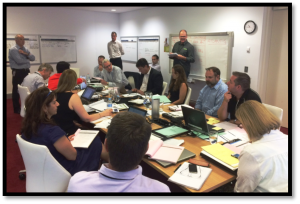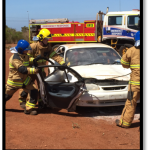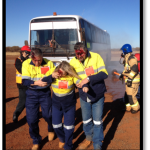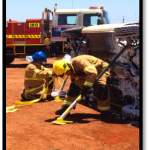ERS Crisis Management Services
Crisis Management Services have again been busy with plan development and training for our clients. Two new clients have been gained this quarter and we are currently developing plans and exercises to meet their needs.
A recent excursion to Tasmania to a mine site was successfully completed with a session on Incident Management and an afternoon rehearsal exercise.
In delivering this session it reminded me of the importan ce of leadership in a crisis. The clientele that we deal with are in most circumstances very experienced managers and leaders in their field. However with a crisis comes a whole new challenge with different pressures and time constraints that are quite often beyond the normal scope of the Mine Manager/Supervisor’s experience. After all it was not the job they signed up for.
My current antithesis for crisis ma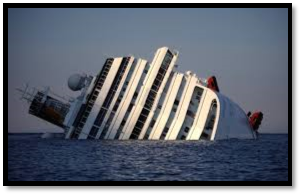 nagement leadership is the recently sentenced Captain of the Costa Concordia, Francesco Schettino, who was convicted of multiple counts of manslaughter and for abandoning his ship. He was sentenced to 16 years in jail for his role and lack of leadership when the Costa Concordia hit rocks off the island of Giglio, resulting in the deaths of 32 passengers.
nagement leadership is the recently sentenced Captain of the Costa Concordia, Francesco Schettino, who was convicted of multiple counts of manslaughter and for abandoning his ship. He was sentenced to 16 years in jail for his role and lack of leadership when the Costa Concordia hit rocks off the island of Giglio, resulting in the deaths of 32 passengers.
Schettino had shown no leadership throughout the incident and in fact abandoned the ship while hundreds of passengers and crew were left on the listing vessel that had struck rocks off the coast of the island. Prior to deserting the ship he was reported as having retreated in to a state of indecision as requests to abandon the ship by bridge officers to him were neglected.
Schettino had previously reported to Investigating Magistrates as to why he left the ship early as “I tripped and I ended up in one of the [lifeboats]. That’s how I found myself there.”
A true leader in a crisis has a number of traits, cowardice and avoidance are not two of them.
In my article today I have set out some of the aspects that I believe are important traits and leadership styles in a crisis.
The Crisis Leader
As a CMT Leader you have assumed the role that has considerable responsibility during emergency operations and recovery activities. You will be leading the management activities related to control of the crisis, have management of the CMT members, and you will be the interface with other groups such as the Board and Executive Management and the Incident Management Team when an incident escalates to a Crisis.
Crisis.
You are also ultimately responsible for the safety systems and ensuring that procedures are in place and operating effectively.
Leadership And The Management Role
Achieving control requires strong leadership and management at a number of levels throughout the crisis management structure. It is not merely about following duty cards and establishing the structure.
Most importantly the Crisis Leader requires experience, technical expertise and leadership and management traits to be successful. That is why you have been selected to assume the role!
Some of the traits that you will need to exhibit to ensure the team works at its optimum are: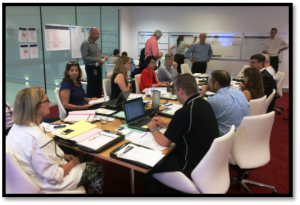
- Approachability: people need to be comfortable when dealing with you, so remain calm and be prepared to listen.
- Friendliness: a crisis should not be an excuse to exert anger or aggressive behaviour, retain your normal person, and be friendly, encouraging people to be harmonious in the pressure of an emergency.
- Inclusiveness: involve everyone in discussions where possible and seek their input, remember there is wisdom in crowds!
- Questioning: be prepared to ask questions.
- Listening: active listening and not being dismissive of people, they will be in the same boat as you, with elevated stress and feeling some discomfort.
- Business like: your day to day job requires a business-like approach, an emergency is no different.
A leadership role in a crisis also calls for the big picture viewer, someone not focused on the weeds. What are the organisational implications, do I need to escalate this incident, who needs to know what? You need to establish intent, model the behaviour, inspire others and also be prepared to coach and mentor the others around you.
Craig Hynes AFSM, General Manager at Executive Risk Solutions


